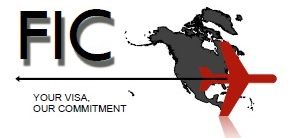Study in Canada
The Canadian Government gives an opportunity for students to study in Canada. The student visa category allows students from all over the world to study in Canada in various disciplines. Anyone wishing to study in Canada is required to obtain a Study Permit and a Temporary Resident Visa (TRV). This study permit is issued to students when they arrive in Canada. However, to get there, a student must first apply for a Temporary Resident Visa which is provided by the Canadian High Commission and facilitated by the Visa Application Centers.
Your study permit is always accompanied along with a visitor visa or Electronic Travel Authorization (ETA). Please note that a study permit is a document that allows you to study in Canada while a visitor visa or ETA allows you to enter Canada. You are required to carry the Letter of Introduction along with all the specified documents to Canada.
Eligibility criteria for Canada Student Visa
If you are a foreign student looking to study in Canada, you need to secure a study permit from Immigration, Refugees, and Citizenship Canada (IRCC). To apply for your study permit, you will need:

- An acceptance letter from your education institution (You have been accepted by a designated learning institute).
- You need to prove that you have adequate funds to pay your tuition fee and living expenses
- Be a law-abiding citizen with no criminal record and not be a risk to the security of Canada (you may have to provide a police certificate)
- Prove that you will leave the country after the study permit expires or apply for a post-graduate work permit if eligible.
- You need to do a health checkup and produce a medical certificate that certifies that you are in good health.
- You will also be required to appear for a personal interview at the Canadian embassy or consulate.
Study levels in Canada
Since the education system in Canada is managed by the provincial governments, the study levels and educational stages may lie in different clusters with different names. Here’s a synopsis:
| Qualification | Duration | Description |
| Certificates and Diploma | 1 to 2 years | Vocational and job oriented programs, mainly technical |
| Associate degree | 2 years | Equivalent to first two years of a 4-year bachelor’s degree |
| Bachelor’s degree | 3 to 4 years | And undergraduate degree which requires successful completion of secondary school. The duration of your course depends on the province and type of program although most courses last for 4 years. Certain provinces like Quebec have bachelor’s degree of 3 years. |
| Bachelor’s Honors degree | 4 years | This will require getting a specific GPA or credits, a majors or a specialist program |
| Postgraduate diploma | 1 to 2 years | A post bachelor degree qualification |
| Master’s degree (by thesis) | 1 to 2 years | Often referred to as research masters, this requires mandatory submission of thesis for assessment and course completion |
| Master’s degree (by non-thesis) | 1 to 2 years | This is a taught master’s degree, not requiring thesis submission |
| Doctorate or PhD | 4 to 7 years | Ph.D. is awarded when students complete dissertation and successfully defend their work before a panel of faculty members |
| Post-Doctoral Programs | No time limit | Specialised research-oriented programs |
UPCOMING INTAKES IN THE CANADA
Canadian universities and colleges offer three intakes. Intakes may also be referred to as a semester in some institutions. The three intakes available in Canada are:
Intake 1: Fall Semester – A popular intake starts in the month of September
Intake 2: Winter Semester – Starts in the month of January
Intake 3: Summer Semester – Usually starts from April/May, this intake is available for limited programs and colleges.
We would advise you to apply well in advance because admissions and scholarships get difficult when you apply closer to the deadline. It is better to apply 6 to 9 months before the academic session starts. You can always contact us for a free counseling session and we can guide you on how to go about the entire visa application process.


